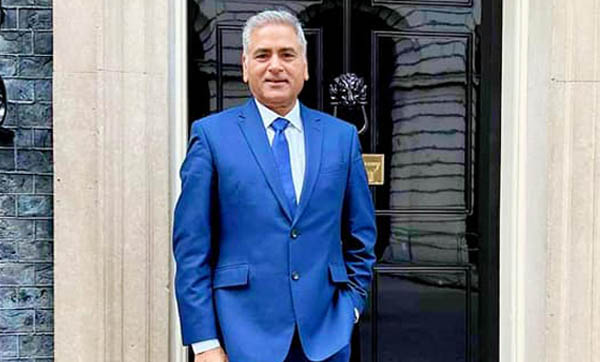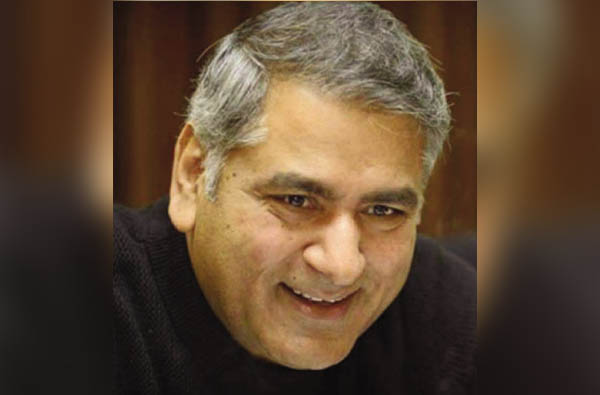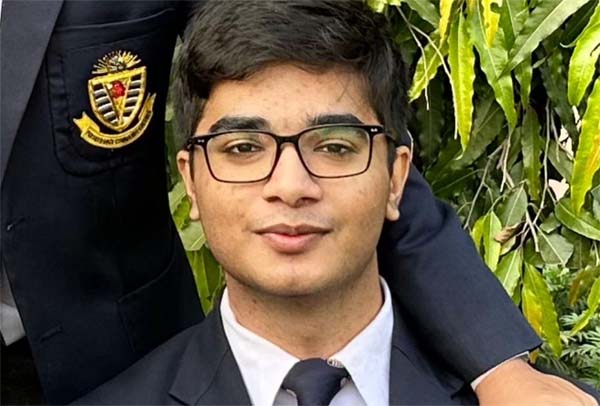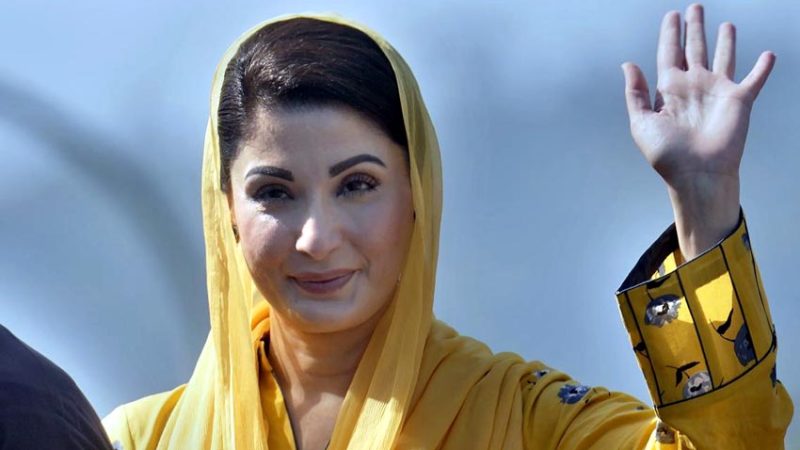Terrorism in Baluchistan.Time to do some thing but what ?

By DrAshraf Chohan
Chief Editor Daily Rapid
Army presence is essential but loyal locals must be cared for. Killings will be counterproductive. In addition to countering terrorism by gun an empowered action committee of politicians under Nawaz Sharif must dialogue with all Pak loyal local tribes and leaders to listen and agree plans of development to end sense poverty.
In another wave of terrorism gunmen in Baluchistan have killed dozens of people in a series of attacks. A separatist group called the Balochistan Liberation Army has claimed responsibility. The worst attack was at a highway when migrant workers in trucks and buses were ordered out and shot dead. Elsewhere soldiers and police engaged in gun battles with separatists.
Military and police sources say 74 people were killed in all, including 21 separatists and 14 soldiers.
An organisation called BLA(balochidstan Liberation army) claimed responsibility for the series of attacks in 2024 which has taken many lives. It is also reported in the press that in one incidence ID cards were checked before killing and Punjabi migrants were targeted.
Prime Minister of Pakistan Shehbaz Sharif addressed the cabinet and blamed TTP for these attacks and said enough was enough. The attackers will be dealt with iron hands but government was willing to talk to those who believed in Pakistan.
DG ISPR said that these are enemies of progress of Pakistan. Army has strength and power to eliminate them.
First of all it’s important to look at the causes of unrest in balochistan which are ongoing for a long time and have only escalated recently.
PM and DG ISPR statements are reasonable and reassuring however local issues cannot be ignored. where there’s smoke there’s fire.
It’s important to see who is behind TTP. International politics particularly the war in the Middle East suggests that the roots of terrorism may not stop within the boundaries of Afghanistan. This may have remote support in the form of funding massively to keep Pakistan engaged within its boundaries. Pakistan has to look for all the neighbours to deescalate tensions wherever possible by signing peace deals to stop cross border terrorism of any kind from any Nation particularly on the eastern border and join hands with the Democratic forces to bring peace in the region.
Pakistan has experienced similar situation in East Pakistan and had tried to curb uprising by power but failed.
A two prong approach is extremely essential which I will discuss at the end.
The Balochistan issue is a complex and longstanding conflict involving political, ethnic, and economic grievances within Pakistan’s largest and most resource-rich province, Balochistan. The conflict has roots in the region’s history, socio-economic conditions, and perceived neglect by the central government of Pakistan. Here’s an overview:
Background and Causes:
1. Historical Grievances:
Annexation and Autonomy: Balochistan was incorporated into Pakistan in 1948. Many Baloch nationalists argue that the accession was forced and not consensual. This has fueled demands for greater autonomy or even independence.
– Centralization of Power: Successive Pakistani governments have maintained tight control over Balochistan’s affairs, which many Baloch perceive as exploitation. This centralization of power has led to feelings of marginalization and disenfranchisement.
2. Economic Marginalization:
– Resource Exploitation: Balochistan is rich in natural resources, including natural gas, coal, copper, and gold. However, many Baloch feel that the profits from these resources benefit the central government and other provinces more than the local population.
– Underdevelopment: Despite its resources, Balochistan remains one of the most underdeveloped regions in Pakistan, with poor infrastructure, low literacy rates, and limited access to basic services. The lack of economic development has exacerbated local grievances.
Political Exclusion:
-Lack of Representation: Baloch leaders have often been excluded from meaningful participation in the national political process. This exclusion has led to the perception that Baloch interests are not adequately represented in Islamabad.
– Military Presence: The heavy military presence in Balochistan, aimed at maintaining order and suppressing insurgencies, has led to human rights abuses and further alienated the local population.
4. Ethnic and Cultural Identity:
– Cultural Suppression: Many Baloch feel that their ethnic and cultural identity is under threat due to the dominant cultural and political influence of other ethnic groups in Pakistan, particularly Punjabis.
5. Insurgency and Violence:
– Militant Groups: Various Baloch nationalist groups have taken up arms, demanding greater autonomy or outright independence. The Pakistani state has responded with military operations, leading to a cycle of violence and repression.
– Human Rights Concerns: Both sides in the conflict have been accused of human rights violations, including extrajudicial killings, disappearances, and attacks on civilians.
Potential Solutions:
- Political Dialogue:
Engagement with Baloch Leaders: The Pakistani government could initiate a sincere and inclusive dialogue with Baloch nationalist leaders, including those who have taken up arms. This dialogue should address their grievances and aspirations, potentially leading to a political settlement.
- Devolution of Power: Greater political autonomy for Balochistan within the framework of the Pakistani constitution could help address many grievances. This would involve devolving more powers to the provincial government, particularly in areas such as resource management and local governance.
- Economic Development:
Equitable Resource Sharing: Ensuring that a fair share of the revenues from Balochistan’s natural resources is invested back into the province could help alleviate economic grievances. This could include infrastructure development, education, healthcare, and job creation initiatives.
- Targeted Development Programs: Special economic zones, employment programs, and infrastructure projects designed to uplift the socio-economic status of Balochistan could foster a sense of inclusion and progress.
- Cultural and Ethnic Recognition:
Protection of Baloch Culture: Recognising and promoting Baloch language, culture, and traditions as an integral part of Pakistan’s diverse cultural heritage could help ease ethnic tensions.
- Education in Local Languages: Supporting education in Balochistan’s local languages alongside the national curriculum could help preserve cultural identity while promoting literacy and education.
- Human Rights Protections:
Accountability for Abuses: Both the state and insurgent groups must be held accountable for human rights violations. Independent investigations and justice for victims could help build trust in the political process.
- Reducing Military Footprint: Gradually reducing the military presence in Balochistan and replacing it with civilian law enforcement could help de-escalate tensions and improve relations between the state and the local population.
- International Mediation:
Third-Party Facilitation: Although controversial, involving neutral international mediators could help facilitate dialogue and negotiations between the Pakistani government and Baloch nationalist groups, ensuring that any agreement is respected by both sides.
Several Pakistani political leaders have been influential in shaping the discourse around the Balochistan issue, either through their roles in government, opposition, or local Baloch politics. It’s important to analyse past effects. Here are some of the key figures who played role in Baluchistan.
Nawab Akbar Bugti was a prominent Baloch nationalist leader and the head of the Bugti tribe. He served as the Chief Minister of Balochistan and later as the Governor of the province.
Influence: Bugti became a symbol of Baloch resistance against the central government, especially during the 2000s when he led an armed insurgency. His death in a military operation in 2006 further fueled the Baloch nationalist movement.
Abdul Malik Baloch
A member of the National Party, Abdul Malik Baloch served as the Chief Minister of Balochistan from 2013 to 2015. He is known for his moderate stance and efforts to bring development to the province. Malik Baloch advocated for greater provincial autonomy and worked to address some of the grievances of the Baloch people through political means. His tenure saw efforts to reduce violence and promote reconciliation.
Nawab Aslam Raisani is the head of the Raisani tribe and served as the Chief Minister of Balochistan from 2008 to 2013. He is a member of the Pakistan Peoples Party (PPP).
Raisani’s leadership was marked by controversy, including allegations of corruption, but he also represented a Baloch voice within the federal structure. His time in office was significant in terms of managing the delicate balance between provincial and central interests.
Sardar Akhtar Mengal is the leader of the Balochistan National Party (BNP) and a former Chief Minister of Balochistan. He is the son of Ataullah Mengal, a key figure in Baloch politics.
Influence:Mengal has been a vocal advocate for Baloch rights and autonomy. He has oscillated between participating in the federal political system and leading protests against it, making him a critical voice for Baloch nationalists.
Hasil Bizenjo was a prominent leader of the National Party and served as a federal minister. He was the son of Mir Ghaus Bakhsh Bizenjo, one of the founders of Baloch nationalism. Bizenjo was known for his moderate stance and efforts to seek a peaceful resolution to the Balochistan issue. He played a role in promoting dialogue and reconciliation between the Baloch people and the federal government.
General Pervez Musharraf was the President of Pakistan from 2001 to 2008. Musharraf’s administration was marked by a hardline approach to Balochistan, including military operations against Baloch insurgents. His policies, particularly the operation that led to Akbar Bugti’s death, significantly escalated tensions in the region.
Mian Nawaz Sharif, the leader of Pakistan Muslim League (Nawaz) and former Prime Minister, has impacted Baluchistan’s political dynamics more than any one else. During his tenure, Sharif supported the Aghaz-e-Huqooq-e-Balochistan package, which aimed to address some of the grievances of the Baloch people through economic and political reforms. He also sought to reduce military intervention in the province. Progress on CPEC was maximum in his time.
Jam Kamal Khan, a leader of the Balochistan Awami Party (BAP), served as the Chief Minister of Balochistan from 2018 to 2021. Jam Kamal focused on improving governance and development in Balochistan, particularly through his support for CPEC projects. His leadership marked an attempt to bring stability and development to the province through the provincial government’s active participation.
Sardar Ataullah Mengal (Late)
Background: A veteran Baloch nationalist leader, Ataullah Mengal was the first Chief Minister of Balochistan and a significant figure in the Balochistan liberation movement. Mengal’s legacy as a champion of Baloch rights continues
Conclusion:
The Balochistan issue requires a multifaceted approach that addresses political, economic, cultural, and discussion about human rights concerns. A combination of sincere political dialogue, economic investment and cultural recognition is essential for lasting peace and stability in the region. While challenges remain significant, these steps could pave the way for resolving one of Pakistan’s most enduring conflicts.
While the terrorist should be handled with the strongest possible response by the strong Pakistan armed forces simultaneously is softer approach by is selected a group of politicians under the leadership of Nawaz Sharif should be given free hand for finalising recommendations for the federal government to implement immediately in Baluchistan to level up if not more the Baloch people to the people with the rest of the country in education, living standards and opportunities. The action committee should include a member from each tribe who are still loyal to Pakistan and leaders mentioned above who are still alive to have a full time task as a priority.






